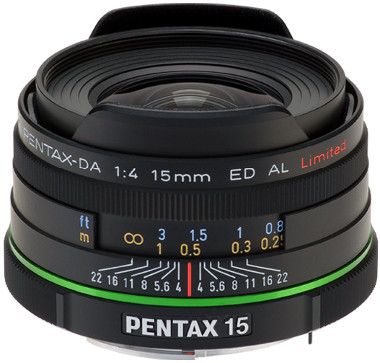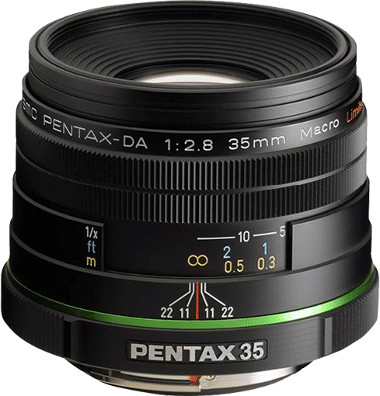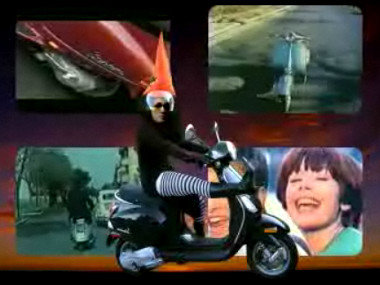How to spend $2430 (in my head)



To preorder or not to preorder, that is the question.
About cameras and taking photos



To preorder or not to preorder, that is the question.
It’s not every day that I’m watching a random mock biography about a faux-German with a hit French pop song, and all of a sudden Stephanie shoots across the screen on a scooter. For reals.

The best part is, Stephanie didn’t even recognize herself (at first). As this blurry little figure on a black scooter zipped across the screen, somehow a lone neuron fired deep within my brain, and I said, “Do you know who that was?” She was like “No…”
And if you thought that was weird, the photo I took of her is also featured on his official website, advertising a contest. Sort of ironic, considering that Helmut Fritz is represented by Sony Music, don’t you think?
Update, 14-Jan-2010: Good news. After getting in touch with some people at Sony Music France, we were able to resolve the matter to our satisfaction.
Every once and a while when I’m searching for sample photos shot with a particular SLR lens (e.g. Pentax smc P-FA 77mm f/1.8 Limited), I’ve found that PBase’s users’ photos, tagged with a given lens, tend to rank highly in Google.
PBase is one of those rare proto-Flickr, proto-social-networking, photo-sharing sites that still seems to be thriving. The founders live in Chapel Hill, which is interesting to me as I lived there for 7 years (during college). It definitely has that Designed By Engineers™ visual style. I love that about pbase links to a page named server_info which in turn links to a page with photos of their servers. Very geeky. You can definitely tell where their hearts are: photos and servers.
Anyway, it’s always astonishing to discover (and rediscover) these communities on the internet, apparently healthy and flourishing, yet operating below the mainstream radar.
So last night I listened to the Fresh Air program about the copyright/fair-use kerfuffle between Shepard Fairey, Mannie Garcia, and the Associated Press (AP). Both Shepard and Mannie were interviewed separately by Terrie Gross, the AP submitted a pre-written statement, and law professor Greg Lastowka commented on the merits of Shepard’s fair use claim.

For anyone who has not been following the course of events, the gist is that Shepard based his iconic Obama Hope Poster on an photo credited to the AP that he found in Google Image Search. He did not know who the photographer was, and readily admits that he did not try to track down the photographer to ask permission. After the election, a flurry of activity was directed towards discovering the original source of the poster, and after one or two false positives, it was discovered that Mannie Garcia had taken the photo of Obama, back in 2006, attending a Darfur event with George Clooney.

Here’s where it gets weird. At this point, the AP contacted Shepard and asked to “work things out”. Shepard says he was willing to pay the license fee, but that the AP wanted additional damages. The AP says they just want to assert their copyright, and were willing to donate the undeclared sum of money to a charity. At this point Shepard preemptively sued the AP to declare his use of the photo protected under the fair use clause of the copyright law, particularly emphasizing the transformative nature of his artwork. Meanwhile, Mannie Garcia alleges that his relationship with the AP at the time did not assign copyright ownership to the AP, but to him. In the press it seems like he has no interest in suing Shepard, but rather has benefited by the increased exposure of his work and name.
What disappointed me last night was hearing Mannie promulgate a rather naive understanding of copyright. He sounded unsure of himself, uncomfortable, slightly combative, almost as if his words were not his own. It made an all the more stark contrast with Shepard, who comes off surprisingly articulate, intelligent, well-spoken, well-reasoned, and passionate about his art.
Here’s what Mannie said:
I was disappointed that someone was able to go on to the internet and take something that doesn’t belong to them and then use it. I think that that part of this whole story is crucial for people to understand. Simply because it’s on the internet doesn’t mean it’s free for the taking. And just because you can take it doesn’t mean it belongs to you.
Now I’m sure Mannie is an incredibly professional and experienced freelance photographer, it’s just disappointing how inexperienced, and unnuanced his understanding of copyright and fair use is.
Actually his statement above is patently wrong. I can go on on the internet, and take something that doesn’t belong to me and use it. And that use is legally protected under copyright law, depending on how it meets any combination of the following four factors: the purpose and character of the use, the nature of the copyrighted work, the amount and substantiality of the portion used, and the effect on the market. And there’s no one formula that determines whether one’s use is protected or not. Each has to be debated individually on its own merits, in a court of law.
If I “dedicate” a digital photo to the public domain, have I dedicated the specific arrangement of pixels that make up that photo—or have I dedicated the more general visual image, the concept of that photo, if you will?
In the case of the former, can I change a single pixel, in a way that’s practically imperceptible to the human eye, but verifiably different (from a mathematical standpoint), and reclaim copyright of that photo (thus effectively removing it from the public domain)? Can I resize a photo and relicense it under different terms?
In the case of the latter, does public domain status follow any trivial transformation of that photo, such as resizing, cropping, or color adjustment? If I were to relicense that photo, would I be stealing or cheating the public? Would I be doing something “illegal”? Just as in the application of Fair Use, perhaps a legal determination would need to be made on the transformative nature of any new work based on public domain material.
If I dedicate something to the public domain, do I as the dedicator have any responsibility to ensure that it’s always publicly available, in perpetuity? This is a question I grappled with as I came to terms with the declining utility of my public domain photo galleries and my desire to merge them into my blog, where the content is currently licensed under a more restrictive (albeit admittedly still user-friendly) Creative Commons By-Attribution license.
If I remove the photos from the internet, does that have a demonstrable effect on the public domain? Does it matter if they were not all very good? If I possess a copy of some public domain material that someone wants, do they have any right to request that I give them a copy? Is it legal for someone to hoard the last copy of some public domain material? Is it moral?
When I first came around to the idea of licensing my photos under a more permissive scheme than copyright, I was immediately attracted to the concept of dedicating them to the public domain because it seemed to be the least restrictive means to give others unfettered access to my “creations”. Honestly I felt very fortunate to have traveled and seen what I did, and I wanted to share that with as many people as possible. It was only later after reading some things, that I realized in some ways the “public domain” is not all it’s cracked up to be.
The truth is, with my galleries having been on the internet, some for a period of over 6 years, numerous web crawlers have cached copies of both the images as well as the surrounding license information that indicated their public domain status. On one hand I don’t want to go through the trouble of indicating that certain resized images republished in new or existing blog posts were in the public domain (and not others). Partly because I’m not even sure if that is necessarily true. And on the other hand, I don’t want to get that email in the future where someone digs up a photo from my galleries lodged somewhere in the bowels of the Wayback Machine and calls bullshit on its new By-Attribution license.
In that case, I would just point them to this post. And honor the original public domain status.